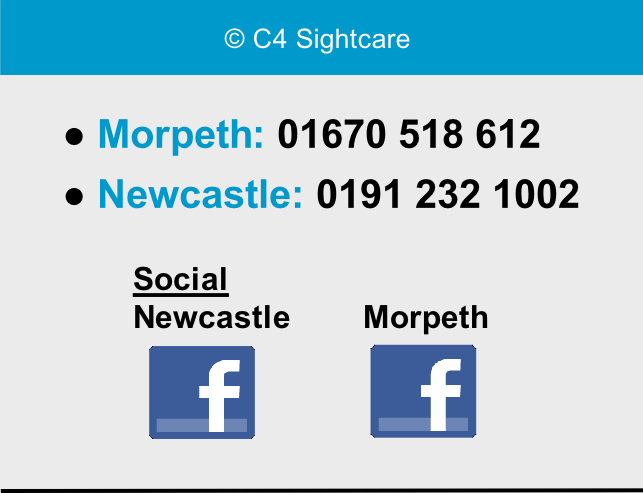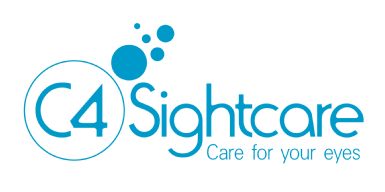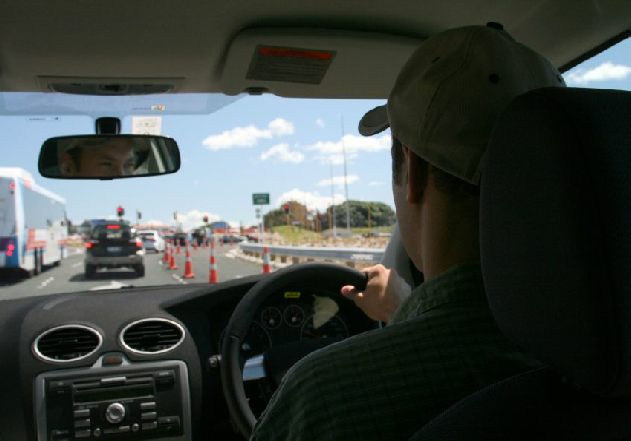




Are you a danger on the road?
Most of the information you take in when driving is visual and if your eyesight isn’t up to standard you could be putting yourself and other road-users at risk.
In law it is the driver’s responsibility to make sure they can read a car numberplate from 20.5m (67ft) away in good daylight and this is checked as part of the driving test.
Millions of drivers - about 44 per cent - don’t have their eyes tested on a regular basis and research has shown that more than 10 per cent of motorists would fail a re-take of the driving test just because of their poor eyesight.
Good eyesight is essential
Drivers must also be able to see clearly all around and in poor light, which is particularly important when the nights draw in.
Changeable weather conditions and the low level of sun during early evening create particular visibility problems.
Some drivers in need of spectacles or contact lenses may not realise that their view behind will be much less clear than the view ahead because of distortion in the mirror.
As we get older, light passing through to the retina at the back of the eye is increasingly scattered by the lens becoming ‘stringy’ or because of cataracts or flaws. This makes sight mistier when Driving on a bright day or in the dark when facing headlights.
Tips for safer motoring
• Make sure your spectacles are kept clean and don’t forget to keep your windscreen clean inside and out and the lights clear too.
• Don’t use tinted spectacles in poor visibility or worse, at night.
• Remember that your sight can be affected by alcohol, prescription medicines and tiredness.
• In the dark don’t look too long at on-coming headlights as it can take time for your eyes to recover. Instead look slightly to the left of on-coming vehicles.

Why not keep a spare pair in the car so that you are never without them? If you normally wear contact lenses, a pair of spectacles could be more comfortable to use on long journeys when your eyes get tired. It is also very useful if you suffer from allergies or have a cold.
If you need to wear prescription spectacles for driving, never replace them with non-prescription sunglasses. Instead get a pair of prescription sunglasses or clip-on lenses.
For drivers, the importance of having a regular eye examination at least every two years cannot be stressed enough, particularly as eyesight changes as we get older.
Why not call into one of our practices to arrange a full eye examination, to ensure that your sight is as good as it should be?
Our opticians are experts on the visual problems of drivers and we will ensure that your spectacles or contact lenses are doing their job properly.
College of Optometrists - Look after your eyes website
Changeable weather conditions and the low level of sun during early evening create particular visibility problems.
Some drivers in need of spectacles or contact lenses may not realise that their view behind will be much less clear than the view ahead because of distortion in the mirror.
As we get older, light passing through to the retina at the back of the eye is increasingly scattered by the lens becoming ‘stringy’ or because of cataracts or flaws. This makes sight mistier when Driving on a bright day or in the dark when facing headlights.
A lot of older drivers gradually avoid driving during these conditions, particularly at night, but there is expert help available. Our optometrists are specialists who will check your eyesight and help with any problems. We will also check your field of vision to make sure that you do not have any problems or blind spots that could stop you from being aware of what is happening off to the sides of your vehicle, such as pedestrians stepping out into the road.
Eyewear for drivers
If you do need to wear spectacles or contact lenses for driving, it is essential to wear them at all times otherwise you are a potential danger and are breaking the law.
Some spectacles are better suited for driving than others. Thin lenses and rimless designs, or those with thin rims, allow greater all-round vision and are better than those with heavy frames. Spectacles with plastic lenses are safer and lighter.
To help you see more clearly and to cut down on glare, especially when driving in the dark, anti-reflection coatings can be applied to any lenses at a reasonable cost.

